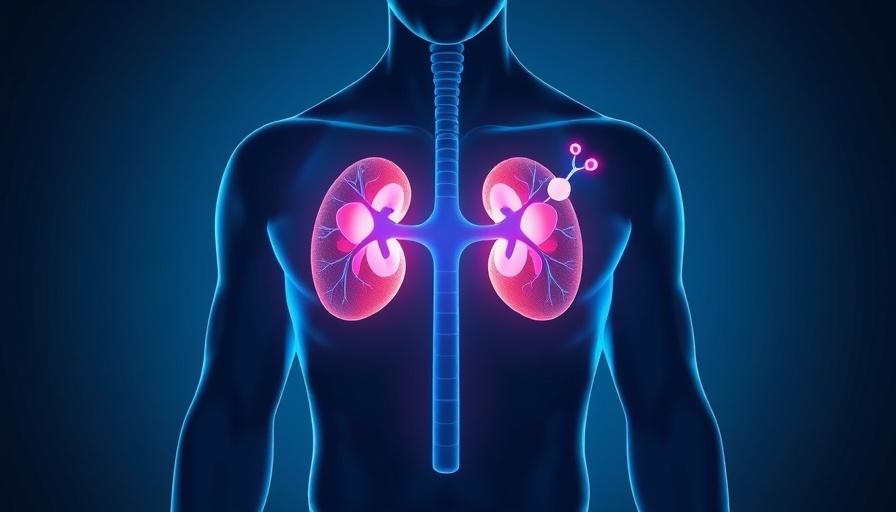
Understanding the Link Between Testosterone and Kidney Health
Low testosterone levels have long been associated with a variety of health issues, but surprising new research suggests they might also play a significant role in kidney stone formation. Kidney stones, often viewed as a painful and sometimes debilitating condition, could have an underlying cause linked to hormonal changes. With hormones influencing not only mood and energy levels but also various physical processes, understanding this connection opens a pathway to better healthcare solutions.
The Science Behind Testosterone’s Role
Testosterone, primarily known as male hormone, influences multiple bodily functions, including metabolic processes, muscle maintenance, and fat distribution. Recent studies establish a connection between low testosterone and an increased risk of kidney stones. As testosterone levels dip, the regulation of calcium in the body can be disrupted, leading to elevated calcium absorption and, subsequently, stone formation. This insight drastically shifts the focus from merely treating kidney stones to examining underlying hormonal balance as a key protective factor.
Consequences of Low Testosterone Levels
Men experiencing low testosterone may face a multitude of challenges beyond kidney health, such as fatigue, depression, and decreased sexual function. These cascading effects can lead to a lower quality of life and affect overall health. It's vital to recognize that hormone health is deeply interconnected with various physiological functions. Addressing hormonal imbalances can alleviate symptoms and improve well-being, which provides a holistic approach to health management.
Empowering Yourself Through Lifestyle Changes
Adopting healthy lifestyle practices can support testosterone and overall kidney health. Regular exercise, balanced diets rich in nutrients like zinc and vitamin D, and managing stress through mindfulness or relaxation techniques can boost testosterone levels naturally. Foods such as leafy greens, lean proteins, and healthy fats can also enhance hormone production. By embracing these dietary and lifestyle modifications, individuals may not only address low testosterone levels but also fortify their bodies against kidney stone formation.
Navigating Your Health Journey with Mindfulness
It’s essential to engage with healthcare professionals if you suspect hormonal imbalances are affecting your health. Regular check-ups can help in monitoring hormone levels and kidney health. Open conversations about your symptoms and concerns will ensure you receive tailored advice and interventions, emphasizing the importance of preventative healthcare. Listening to your body and understanding its signals can empower your health journey.
In conclusion, understanding the link between low testosterone and kidney stone risk highlights a crucial aspect of men’s health that deserves attention. By exploring this connection, you not only gain awareness of potential risks but also take proactive steps to improve your overall health through diet, lifestyle, and open communication with healthcare providers. Empower yourself to live healthier—your kidneys will thank you!
 Add Row
Add Row  Add
Add 



 Add Row
Add Row  Add
Add 

Write A Comment